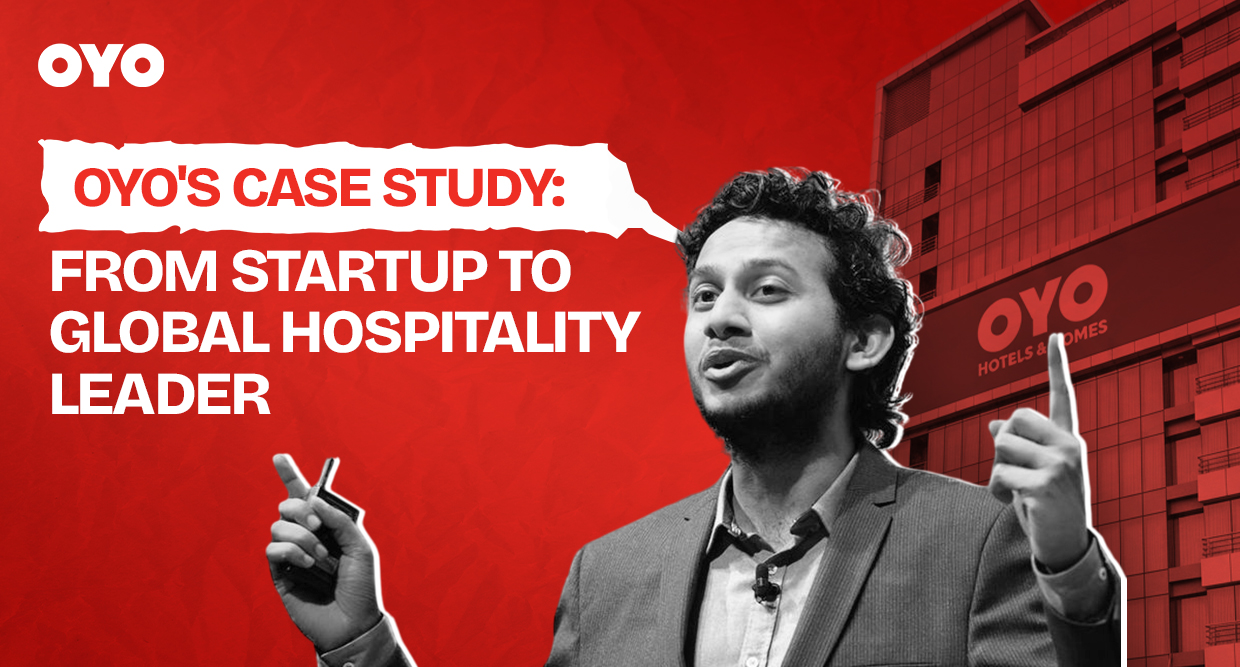

Few startup stories have redefined the landscape of Indian entrepreneurship as dramatically as OYO Rooms. What began as a modest idea to standardize budget accommodations soon evolved into one of the world’s most recognized hospitality brands. This OYO case study explores how the company disrupted the hotel industry, expanded globally, and built a strong business and revenue model that aspiring entrepreneurs can learn from.
For management students and future leaders at institutions like BIBS — one of the top MBA colleges in Kolkata, OYO’s journey provides a masterclass in innovation, adaptability, and global operations management.
Founded in 2013 by Ritesh Agarwal, OYO (On Your Own) started as a simple idea—providing affordable and standardized accommodation across India. Ritesh, a young entrepreneur with a passion for travel, identified a glaring gap in the Indian hospitality market: unorganized budget hotels offering inconsistent experiences.
He transformed this insight into a business model that combined technology, franchising, and customer-centric service—a formula that would soon revolutionize the industry.
Students pursuing an MBA in Business Management in Kolkata can relate this to identifying market inefficiencies and creating value-driven business solutions—key principles taught at BIBS through case-based learning and live business projects.
At its core, the OYO business model is a blend of technology, real estate aggregation, and brand management. Instead of owning hotels, OYO partners with small hotel owners, upgrades their infrastructure, and lists their properties under the OYO brand.
How it works:
This asset-light strategy allowed OYO to scale rapidly while maintaining cost efficiency—an essential takeaway for management students studying business model innovation and operations management.
The company’s growth strategy relied on three pillars: rapid market expansion, technological investment, and strategic funding. Within just a few years, OYO had expanded to hundreds of cities in India and entered international markets such as China, the UK, and the US.
At BIBS, students learn similar frameworks of global market entry and growth management through international business modules and live case discussions—skills that are essential for future global leaders.
OYO’s meteoric rise was fueled by an aggressive investment and funding strategy. It attracted major investors like SoftBank Vision Fund, Sequoia Capital, and Lightspeed Venture Partners.
The company strategically used these funds for:
These decisions highlight the importance of financial strategy and investor relations in scaling startups—key components covered extensively in the MBA in Business Management program at BIBS Kolkata, preparing students to understand the financial architecture of high-growth companies.
OYO’s global ambitions were evident early on. The brand ventured into over 80 countries, including the USA, UK, China, and Japan. Managing such a vast network required a deep understanding of global operations management.
The company established local leadership teams, tailored offerings to regional preferences, and built partnerships with local hospitality chains.
However, the journey was not without challenges differences in market dynamics, regulatory hurdles, and operational inconsistencies demanded continuous innovation and adaptability.
This global trajectory serves as an excellent case study in global operations management for MBA students, demonstrating how theory translates into real-world practice.
The OYO revenue model is designed to ensure scalability and sustainability. Its key revenue streams include:
The model’s flexibility allows OYO to adjust to varying market demands—a lesson in adaptive business strategy that MBA students at BIBS explore through simulations and case discussions.
OYO’s growth was driven by its deep understanding of customer needs—affordable, reliable stays with modern amenities.
The company’s use of automation and analytics improved both efficiency and guest satisfaction.
Collaborating with small hotel owners created a win-win ecosystem.
Despite challenges in some regions, OYO continued to refine its strategies to suit local conditions.
Ritesh Agarwal’s entrepreneurial mindset and resilience played a crucial role in steering the company through rapid transitions.
These lessons from successful startup OYO provide invaluable insights for students aspiring to lead startups or manage large organizations. BIBS, recognized among leading MBA colleges in Kolkata, emphasizes entrepreneurial leadership and innovation—core pillars that mirror OYO’s journey from startup to global brand.
Ritesh Agarwal’s journey exemplifies OYO entrepreneurship—a blend of vision, persistence, and strategic execution. His ability to identify a pain point, create a scalable model, and transform it into a global success story showcases the power of innovation-driven leadership.
At BIBS, students are encouraged to develop a similar entrepreneurial mindset through mentorship programs, startup incubation support, and industry interactions. The institute’s real-world teaching methodology ensures that graduates are equipped to navigate the complex landscape of modern business.
The OYO success story is not just about building a company—it’s about transforming an industry through vision and execution. From redefining budget hospitality to managing global operations, OYO’s journey provides powerful lessons in innovation, adaptability, and business strategy.
For aspiring business leaders, pursuing an MBA in Business Management in Kolkata at BIBS offers the opportunity to learn from such global case studies, apply theoretical concepts to real-world challenges, and prepare for leadership roles in dynamic industries.
At BIBS, the focus goes beyond classroom learning—it’s about shaping the next generation of entrepreneurs.
Who can build the next OYO!?
Copyright - BIBS Kolkata
| Website by Marko & Brando
All rights reserved